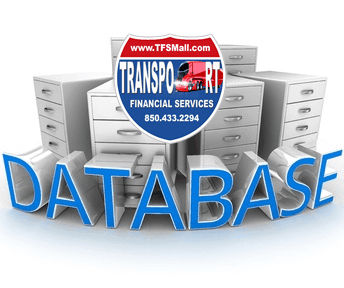
The push to automate freight brokering is gaining momentum with technology startup Convoy raising $62 million to accelerate its growth plans and Uber Freight adding features and expanding into new markets since its May launch.
These digital freight brokers offer mobile applications that match carriers with loads, automate manual processes and provide upfront pricing and speedy payment.
Other firms that are connecting carriers with available freight through smartphone apps include Transfix, TruckerPath’s Truckloads app, Cargomatic, Overhaul and LaneHoney.
Convoy’s new round of financing, led by startup accelerator Y Combinator, will enable the company to continue expanding its services.
Convoy will invest those funds in building a “national automated network of trucks and trucking companies,” CEO Dan Lewis told Transport Topics.
That expanded network will allow Convoy “to improve efficiency across the country and really start to lower the cost structure of the industry while also improving service levels,” he said.
At the same time, Convoy will continue to invest in its technology by hiring more workers with data science and engineering backgrounds.
The Seattle-based company currently has 120 employees and plans to “grow that significantly over the next couple of years,” Lewis said.

Convoy founders Grant Goodale and Dan Lewis, courtesy of Convoy
Since its launch in 2015, Convoy has been focused on automating various aspects of freight transactions, including pricing and load matching — in other words, “finding the right truck and the right driver for the right job at the right time at the right price,” he said.
Uber Freight is working to solve that same problem.
Uber Freight has updated its platform to provide personalized load matching designed to make it easier for drivers to find the types of freight they like to haul.
The app now automatically learns drivers’ preferences based on their past loads, location, home base, length of haul and other factors, the company said. When a new load that matches these preferences becomes available, the app pushes a notification to the driver.
“We are continuing to evolve the product and we are releasing a series of features to help get the right load to the right driver,” said Uber Freight Director Bill Driegert.
“The app is scraping all the loads that are in our system and pinpointing the ones that are the best suited to each driver at any given time,” added Eric Berdinis, Uber Freight’s senior product manager.
Berdinis described the update as “the first step in a longer journey.” As Uber continues to refine the technology and learn more about driver preferences, the goal is to reach a point where the load notifications sent to drivers are “a perfect match every time,” he said.
Uber Freight also is expanding its focus beyond its initial launch market in Texas.
While shippers and carriers already are using the app to move freight throughout the country, Uber is now working to increase the amount of loads available on the platform in major metro areas in California, Arizona, Georgia, North Carolina, South Carolina and Chicago and the Midwest.
“By focusing on these particular regions, we’re trying to drive density in targeted areas and also getting more and more drivers onto the application in those areas,” Driegert said.
While most of Uber Freight’s loads today are still in Texas, drivers can expect to see a greater number of loads available on the app in these new markets in the coming months, the company said.
It declined to say how many loads have been moved via the platform or how many drivers are currently using the app.
Uber Freight is a unit of ride-hailing giant Uber Technologies Inc.
In addition to Y Combinator, Convoy’s financing round also included Cascade Investment, the private investment company controlled by Microsoft co-founder Bill Gates, as well as Mosaic Ventures and Barry Diller.
Anu Hariharan and Ali Rowghani, partners in Y Combinator’s Continuity growth fund, joined the Convoy board of directors.
“By improving trucking, Convoy is improving the foundation of our economy,” Hariharan said. “This service allows shippers to transform their supply chains at the same time that it allows carriers to grow their businesses more quickly, on their own terms. In 10 years, we’ll be astonished that this was ever done another way.”
Convoy said its customers include more than 300 shippers of various sizes, including Fortune 500 companies such as Unilever and Anheuser-Busch.
“A lot of them want to make a bet on the future because they’re excited about innovation and trying new things and learning how to improve their businesses,” Lewis said. “We want to be that bet.”
About 10,000 trucking companies are participating in Convoy’s freight network, the company said.
“We’re doing thousands of jobs per week now,” Lewis added.
Prior to its latest round of funding, Convoy had previously raised almost $20 million, he said.
Other Convoy investors include Reid Hoffman and Simon Rothman of Greylock Partners, Amazon.com founder and CEO Jeff Bezos via Bezos Expeditions, Salesforce CEO Marc Benioff, Code.org founders Hadi and Ali Partovi, former Starbucks President Howard Behar and the founders and CEOs of Expedia, eBay, Instagram and DropBox.
Even as digital freight brokers such as Convoy and Uber Freight push to expand their networks, Convoy’s Lewis said his company is competing primarily with asset-based carriers and traditional freight brokers, at least for now.
“That’s the majority of who we bump into when we do business,” he said, adding that there hasn’t yet been a lot of overlap between the digital freight companies given the size of the transportation industry.
That will change, however, if these companies successfully realize their growth plans.







